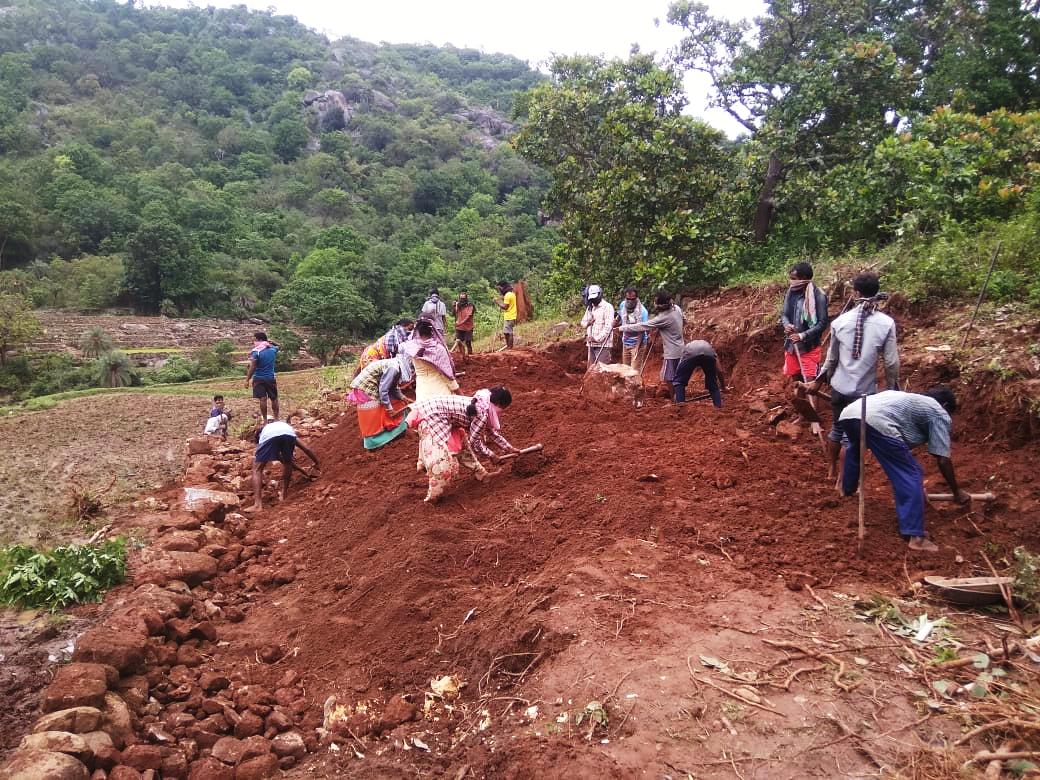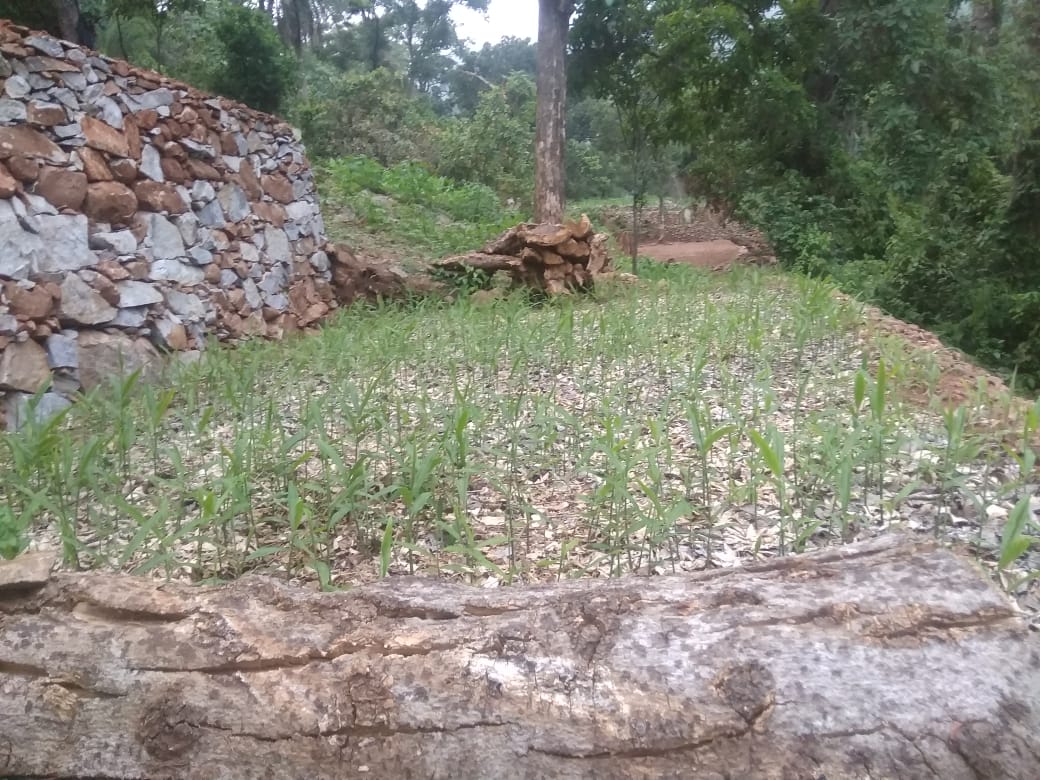Work under MGNREGS provides the much-needed income in times of the pandemic
StoryBy Rahul Thekdi, Chandrika Patnaik
14 July 2020
Gram Vikas' efforts to support rural local bodies in identifying work locally, under the MGNREGS, is providing jobs and income to Tidasing village residents. The Gram Panchayat has been actively utilising the funds to provide work such as clearing and levelling fields owned by individuals in the village. As a result, farmers with land in the village will be cultivating their fields for the first time.

Tidasing village residents engaged in clearing and levelling fields owned by individuals in the village.
Photograph by Arun Kumar Sahu
Paul Mandal owns about one acre of land in his village Tidasing in Odisha’s Gajapati district. Much like Paul, most of the households in this village are marginal farmers owning small parcels of their own land. Produce and income from these are not enough to feed their families. But it will certainly help boost the incomes they earn from working as farmhands in nearby villages. However, Paul and many like him do not cultivate anything on their lands as they are filled with shrubs and boulders and not levelled.
The Tidasing Gram Panchayat (GP) took active steps to address this issue. Annually, the village committee receives grants from the government to undertake land clearing work under MGNREGS, the Government of India’s wage for work programme. The committee reaches a consensus on the types of work and the number of people needed for it. The GP Head or Sarpanch then conveys the decision to the people. Last year, the village committee in Tidasing decided to level the lands belonging to four residents so that they could cultivate their land and be self-sufficient.
Rapani Roita was one of the first beneficiaries of this programme. His land is now ready for cultivation. Fortunately for him, a water canal flowing down from a higher altitude is close to his land, giving him enough water for farming. Rapani has sown 10 kg of paddy on his land for the first time. He is expecting at least two tonnes of harvest this season.
Like Rapani, Paul too features in the list of MGNREGS beneficiaries for this year. For 12 days, 42 people from the village worked on Paul’s land to make it cultivable. Not only did this help each of them earn daily wages of ₹184 but they also got a parcel of land ready for farming. As of now, Paul is waiting for the soil to absorb moisture and become softer after which he will start cultivating.

Jikoriyo has planted ginger on his land and expects good produce by the end of this year. Photograph by Arun Kumar Sahu
Jikoriyo Roita and Ramesh Mandal also have similar experiences to share. For the first time, these farmers have been able to cultivate their land and earn a living by selling the produce in the local market. Two and a half months back, Jikoriyo planted 50 kg of ginger on his land. He hopes to get two tonnes of ginger by the end of this year and sell it in the local market. After about two months, Ramesh also will start growing maize, ragi and seasonal vegetables on his land.
Most of the 42 households of Tidasing own land and are dependent on rains for agriculture. But in the absence of cultivable land, they are forced to move to the neighbouring villages for work. Employment opportunities under the MGNREGS have reduced the need to travel to other villages as work is now available in their own villages.
Gram Vikas team works to spread awareness in partner village communities about MGNREGS, their rights and entitlements under the programme and help people get their job cards. Additionally, the team supports village governments to identify work locally that would fall under the programme. They also support the gram panchayat to mobilise people to take up the work.
Paul Mandal got his land cleared, levelled and fit for cultivation under the MGNREGS work.
Photograph by Arun Kumar Sahu
ACKNOWLEDGEMENT
Arun Kumar Sahu, Field Expert for Water, with Gram Vikas, helped in data collection. Priya Pillai edited the story.
ABOUT THE AUTHOR
Rahul Thekdi is a communication intern and Chandrika Pattnaik is a Junior Manager at Gram Vikas.
RELATED BLOGPOSTS
Turning losses into gains: How Mallipanka farmers find success in new crops
Reviving agriculture: Mallipanka’s first strawberry farm story.
Ensuring dignity beyond life: supporting migrant families in their darkest hours
Gram Vikas ensures safe migration and dignified repatriation for deceased migrant workers, supporting bereaved families.
Collective leadership transforms ageing overhead water tank to secure household water supply for all
Kalakhadi’s aging overhead tank revived through collective leadership, ensuring sustainable water supply for the community.